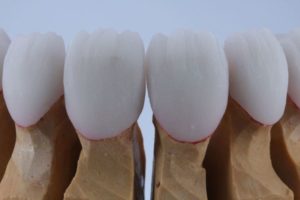Occlusion or Delusion: The Chewing Gum Conundrum
Chewing gum can tell us more about a patient’s muscles then you might expect.
I’ve often brought up the importance of asking the right questions and how useful it is to be specific and interpret significant clues. Whether you’re asking about headaches, bite, or some other factor, you must carefully construct your words to receive the best feedback.
Investigating the Basis of Muscle Fatigue With Chewing Gum
 How long could you chew a piece of gum?
How long could you chew a piece of gum?
I know you think this is a trick question because dentists don’t like anyone to chew gum, but I mean it seriously. This is what you should be asking your patients to determine key insights about their muscles and jaw.
If somebody cannot chew gum – if they say their jaw gets tired or they have to spit it out – then that’s a sign they have muscle fatigue.
A patient who has healthy, adapted masticator muscles should be able to chew gum for as long as they want without getting fatigued. This is also true with other chewy foods like steak.
The only reason for elevator muscles to be fatigued is if they are overused. And the only reason this would happen is if the patient is parafunctioning, clenching, grinding, etc.
Knowing the patient can’t chew gum tells you quite a bit about their muscles. It’s an easy and important screening question to determine muscle fatigue.
What to Do If Chewing Gum Is Exhausting
Muscle fatigue indicates that the patient is dealing with parafunction. This creates those nasty fracture and joint problems, occlusal related muscle problems, and more.
You need to know they are parafunctioning because parafunction can effect your restorative dentistry. You don’t want them breaking a crown unnecessarily.
Parafunction is also an indicator that the patient might need an appliance. It tells you that you’ll want to do a more extensive muscle exam to find out what’s really going on.
How do you phrase important questions so that you can get the most valuable information from patients? We’d love to hear from you in the comments!



